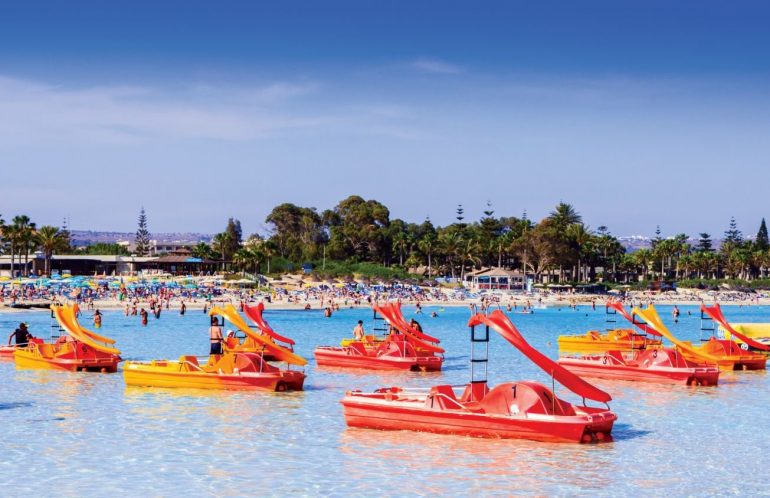By Marinos Pavlikas
A little over half a year has passed since the beginning of his pandemic COVID-19 in China, which has plagued the entire planet and led to nearly 600 deaths worldwide, with up to 14 million cases. Therefore, the consequences of the pandemic, in addition to the tragic event of death and the hundreds of thousands who are hospitalized worldwide, bring about, as it was particularly felt, far-reaching economic changes around the world.
Professor Grigoris T. Papanikos, President of the Athenian Institute of Education and Research, in a recent article (The economic implications of the 2020 pandemic in the European Union, 2020), highlighted the rapid impact on the economic sector in the European Union, which was highlighted and by the Commission on 6 May 2020 in a relevant estimate made for the GDP index of the Member States for 2020 compared to 2019, where a reduction of 7.03% is projected. Greece seems to have the biggest economic impact, with a decrease of 9.74%, while for Cyprus it reaches 7,4%, a little above the average for the EU member states. Kristalina Georgieva, Director General of the International Monetary Fund, has already stressed that the new coronavirus pandemic is a "crisis like no other".
Tourism has been "hit"
The economic crisis in which the planet has now entered seems to be "hitting" more countries that rely on economies or industries that have been mainly affected by the measures taken by countries to prevent the transmission of COVID-19. According to the International Labor Organization (ILO), the sector most affected by the pandemic is tourism, with the European Union losing one billion euros in revenue per month, while tourism was projected to be 2020th by 11,5. 252% of world GDP. At the same time, as mentioned, the International Air Transport Association (IATA), in its estimates estimates that passenger revenues will decrease by 44 billion dollars, ie a 2019% decrease compared to XNUMX.
Countries that are directly dependent on tourism have seen their economies collapse due to the pandemic, as the crisis has occurred not only in jobs directly related to tourism, ie hotels, airlines, and travel agents, but also businesses and sectors of the economy that are directly or indirectly related to tourism. The example in our country is particularly obvious, since areas that are 100% dependent on visitors, such as Protaras and Ayia Napa, are sad images, with a large number of businesses remaining closed. And the forecasts are becoming even more pessimistic, with experts arguing that tourism is likely to start recovering up to twelve months after the end of social isolation (Marlei Salete Mecca & Maria Gorete do Amaral Gedoz, 2020), so even the beginning is in danger. of the tourist season in 2021.
The new type of tourism and sustainable development
The crisis that has been created in tourism, due to the pandemic, has led experts to redefine the identity of tourism and the tourism product offered, but also the development to which the industry is led. The focus of the discussion is the need for sustainable development in tourism and to be based on sustainable development goals (SDGs), rather than a development that benefits the few (Piketty, 2015). According to the study entitled "Pandemic, tourism and global change: an early assessment for COVID-19”By Professors Stefan Gössling, Daniel Scott and C. Michael Hall (Journal of Sustainable Tourism, 2020), addresses various questions raised about the future of tourism, such as whether the pandemic will lead to difficulty in opening borders, or decisive role of domestic tourism, changes in the way travel is done, such as the inclusion of video calling and how this affects business travel, but mainly the economic and environmental impact, due to tourism, and the need for sustainable development. At the same time, it is pointed out that low-paying jobs in the tourism sector have been disproportionately affected by the crisis and the first indications are that the impact on low-income countries will be significantly greater. The study concludes by emphasizing that its pandemic COVID-19 has delivered important lessons to the tourism industry, to policy makers, but also to tourism scholars, about the global impact that has occurred. On the other hand, the challenge is, now, the study concludes, to "learn collectively from the pandemic, in order to quickly lead to the implementation of sustainable tourism".
At the same time, as suggested by Peter Jones and Daphne Comfort (“The COVID-19 Crisis, Tourism and Sustainable Development, 2020), there are some important elements that will lead to sustainable and sustainable development in tourism, in the shadow of COVID-19, such as market research on traveler behavior, research on the effects of the pandemic on the food production chain in particular, and how technology can help solve traveler safety and health problems .
